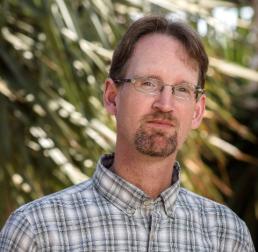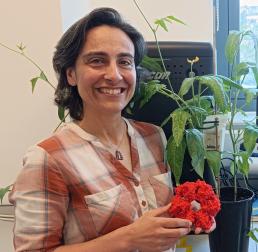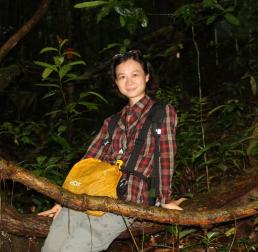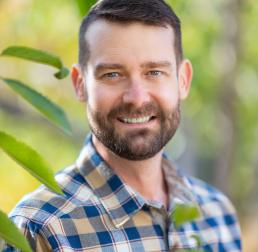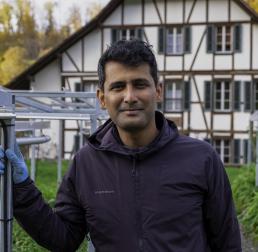With 2024 marking the hottest year on record and heatwaves now affecting over 10% of Earth’s land, understanding and mitigating the effects of extreme heat is more urgent than ever. Join us to discuss shaping strategies to extend the thermal limits of life and safeguard the future of our ecosystems.
Travel grant and selected speaker application deadline: 2nd February 2026 - now closed
Poster abstract deadline: 2nd March 2026
We have now reached our capacity for registrations. We have saved some places for accepted abstracts that have not registered, therefore the best way to get a place at this symposium is to submit an abstract. Please also register for the waiting list, as we are exploring ways to add additional capacity. - added 31 January 2026
Background
Extreme heatwaves are becoming more frequent, intense, and widespread, threatening biodiversity, food security, and ecosystem stability. Since mid-2023, temperatures have exceeded 50°C in multiple countries, prompting the UN to declare heatwaves a climate emergency. While the effects of extreme heat on human health and urban environments are increasingly studied, its impacts on natural and agricultural landscapes remain poorly understood. Without adaptive intervention, future heatwaves could drive collapses in key ecosystem functions, endangering productivity, biodiversity, and economic security.
This symposium will unite experts across a range of disciplines to explore how extreme heat affects plants and other ectothermic organisms that underpin ecosystem productivity.
Discussions will focus on:
Adapting plant metabolism to heat stress: how does heat stress affect plant metabolism, how have organisms adapted in hot environments, and what potential adaptation options are there?
Water use to mitigate heat stress: how do plants use water to avoid heat stress, what options are there for efficient water use to minimise heat stress.
Adapting life history to heat stress: how do organisms use phenology to avoid heat stress, considering e.g. sensitivity of reproductive phase to heat and changes in the timing of plant growth.
Biotic interactions under heat stress: how are biotic interactions affected by heat stress, how can we use biotic interactions to increase resilience to heat?
Microclimate management to mitigate heat stress: how do temperatures vary within natural and managed ecosystems, how do organisms use microclimates to avoid heat stress, what adaptation options are there to modify microclimates?
Organising Committee
Owen Atkin, Australian National University, Australia (Chair)
Cristina C. Bastias, University of Córdoba, Spain
Andrew Feldman, NASA / University of Maryland, USA
Kevin Hultine, Phoenix Desert Botanical Garden, USA
Belinda Medlyn, Western Sydney University, Australia
Adrienne Nicotra, Australian National University, Australia
Rafael Villar, University of Córdoba, Spain
Places at this symposium are limited. Register early to secure your place.
Registration is done on the Oxford Abstract registration portal. If you do not already have an account, you will need to create a free account.
We have now reached our capacity for registrations. We have saved some places for accepted abstracts that have not registered, therefore the best way to get a place at this symposium is to submit an abstract. Please also register for the waiting list, as we are exploring ways to add additional capacity. - added 31 January 2026
Registration rates*:
Early bird regular: €370
Early bird student: €290
Regular: €470
Student: €325
*additional service fees of 3% will be added by Oxford Abstracts when registering.
Early bird rates will apply until 2nd February 2026, after which the regular rates will apply.
Registration includes:
Access to all sessions
Lunch and refreshment breaks as per the schedule
A place at the symposium dinner (details to be confirmed)
Travel grants and fee waivers
PhD students and early career researchers with fewer than 5 years' experience since completing their PhD may request a fee waiver or travel grant when submitting an abstract. We expect the process to be competitive. You are encouraged not to wait until the outcome of your travel grant application to register, but to register early with the early bird rates. If you are unable to pay the registration fee upfront, you can select the option to pay by invoice, and the invoice payment can be delayed until after the travel grant applications are reviewed. Should your application be successful, your registration fee will be refunded, or the amount of your registration fee can be added to your travel grant reimbursement. If your application for a travel grant and/or fee waiver is unsuccessful, and you choose not to attend, you will have two weeks from being notified in which to cancel your place and receive a refund of your delegate fee (minus any Oxford Abstract fees).
Waiting list
Places at this symposium are limited. Should we reach capacity for the symposium, delegates interested in attending should register for the waiting list. Should a place become available you will be contacted with details on how to register and pay the symposium registration fee.
Payment options
Our preferred payment method is to for delegates to pay by card when registering, or opt to generate an invoice link to allow a third party, such as your finance team, or administrator, to pay by card.
If you are unable to pay by card you can generate an offline payment invoice to pay by a bank transfer. You should provide the name and email address of the person responsible for paying the invoice.
Invoices must be paid within 30 days, or the delegate place may be cancelled and offered to the waiting list. The exception is where a delegate has applied for a fee waiver, in which case the payment term will be extended until two weeks after notification of the outcome of their application for a fee waiver.
Cancellation policy
If a delegate is no longer able to attend, they should inform Christine Phillips, Events and Promotions Manager, immediately. The delegate can opt to transfer their registration to another delegate, or request a refund. Refunds of registration fees will be provided where the delegate place is able to be re-sold. Service fees will not be refunded. If a delegate has paid via an offline payment invoice/bank transfer a €20 admin fee will be deducted from any refund. Please note that cancellations received with less than 14 days' notice are unlikely to be able to be resold.
Where a delegate is presenting a poster and is unable to attend they can request that a co-author can present the poster on their behalf. The delegate place can be transferred to the co-author.
Should circumstances beyond our control force the cancellation of the symposium, the New Phytologist Foundation is unable to accept liability for any additional costs incurred, including travel costs, and delegates are strongly encouraged to take out appropriate travel insurance to cover them in the event of cancellation.
Abstract submission
Delegates are encouraged to submit an abstract to be considered for an oral or poster presentation.
We have limited poster exhibition/programme space, and expect the process to be competitive. Preference will be given to new unpublished, or recently published, work.
Each presenting author is limited to one abstract submission, but there is no limit on how many times you are listed as co-author. Should an abstract be selected for inclusion the presenting author will need to register to attend before their inclusion in the programme is confirmed. We encourage authors to register early to take advantage of the early bird registration rate.
Travel grant application and selected speaker deadline: 2nd February 2026- now closed
Poster abstract deadline: 2nd March 2026
We will aim to confirm travel grant and speaker decisions in early March, and poster acceptances by 31st March.
Abstract guidelines
All abstract sections should be provided in English.
The main text should provide concise details of the background and objective(s) of the investigation, methods used, results and conclusion.
Abstract text should be no more than 200 words.
Abstract submissions are done on the Oxford Abstract submission portal. If you do not already have an account, you will need to create a free account. For further advice on submitting an abstract please visit their guidance for submitters page. You can also contact the Events and Promotions Manager, Christine Phillips at np-symposia@lancaster.ac.uk for assistance.
Travel grants
Applications for travel grant are now closed.
We have a limited number of travel grants and fee waivers available. You must submit an abstract by the travel grant deadline of 2nd February to be considered.
Travel grants and/or fee waivers are available to PhD candidates and early career researchers with fewer than 5 years' experience post PhD. This can be extended to researchers with more than 5 years experience where they are based in a country that is classed as low- or middle-income by the World Bank, and would be unable to attend without a travel grant. Travel grant amounts will vary, as they are based on the travel costs for each recipient.
Travel grants and fee waivers will be awarded based on the scientific merit of the abstract submitted. The financial need of the participant will also be taken into account.
To apply for a travel grant and/or fee waiver, in addition to your abstract you should submit:
A brief (no more than 200 word) statement indicating your reasons for wishing to attend and how you hope the meeting will enhance your career/research.
A CV, which includes academic details, publication history, presentations given, awards and any other information to support your application.
A supporting letter from a scientist who has agreed to act as a reference for your application, this can also be emailed directly to np-symposia@lancaster.ac.uk by 2nd February 2026. (if you are only applying for a fee waiver you do not need to provide a supporting letter)
If you have any questions, please contact the Events and Promotions Manager, Christine Phillips at np-symposia@lancaster.ac.uk
You are encouraged not to wait until the outcome of your travel grant application to register, but to register early with the early bird rates. If you are unable to pay the registration fee upfront, you can select the option to pay by invoice, and the invoice payment can be delayed until after the travel grant applications are reviewed. Should your application be successful, your registration fee will be refunded, or the amount of your registration fee can be added to your travel grant reimbursement. If your application for a travel grant and/or fee waiver is unsuccessful, and you choose not to attend, you will have two weeks from being notified in which to cancel your place and receive a refund of your delegate fee (minus any Oxford Abstract fees).
Claiming a travel grant or travel contribution
When a travel grant, sometimes referred to as a travel contribution, has been awarded, the payment of the travel grant will not be issued until after the event.
The New Phytologist Foundation will have set a specific amount for the travel grant. No receipts are required to claim the travel grant. This allows the travel grant recipient to arrange their travel to best suit their needs.
Where possible, we encourage travel grant recipients to combine their travel to the event with other activities to make better use of the carbon footprint of attending the meeting.
The payment of a travel grant can be to the recipient's institution, or to their personal bank account, and will be made by a bank transfer. Travel grant recipients will receive a link to a secure form to provide their bank details to arrange the payment of the travel grant. Institutions may send an invoice for the amount of the travel grant to the New Phytologist Foundation. Please contact np-finance@lancaster.ac.uk with any questions about invoices.
If paying for their travel in advance will cause the attendee to experience a significant financial burden, or if the delegate will have difficulty in receiving a bank transfer from the UK, please contact the Events and Promotions Manager to discuss alternative options.
If the delegate is unable to attend the event, generally the travel grant will not be paid. Delegates are encouraged to take out travel insurance to cover them should they be unable to attend. Any request for a travel grant to be paid following non-attendance will need to be approved by the Executive Editor. We will request confirmation of travel expenses with receipts in these circumstances, as well as proof that the travel costs could not be refunded.
Invited speakers
Additional speakers will be selected from submitted abstracts.
Symposium venue
The symposium will take place at the Rectorate building of the University of Cordoba
Address: Av. de Medina Azahara, 5, Poniente Sur, 14071 Córdoba, Spain.
Travel
Getting to Cordoba
Cordoba is well linked to other major Spanish cities by high-speed train, and inter-city buses. Further information is available at the Cordoba tourism website: https://www.turismodecordoba.org/transport#
By Air
Cordoba has a small airport (Airport code ODB), but you will find significantly more flight options from other regional airports.
From Malaga Airport you can take a local train or taxi to Málaga Central Station, and then get the high-speed train to Cordoba, which takes 45-50 minutes.
From Seville Airport you can take a local bus or taxi to Seville Central Station and then get the high-speed train which takes 35-40 minutes
From Madrid Airport you can take a local train or taxi to Puerta de Atocha Station in Madrid, and then get the high-speed train to Cordoba, which takes 1h 40 minutes – 2 Hours.
Accommodation
Delegates are responsible for making their own accommodation bookings.
Invited speakers - please refer to your invited speaker information for further details about your accommodation, or contact the Events and Promotions Manager.
Please be cautious of any third-party emails that claim to arrange accommodation for the symposium. We do not work with third parties, and these are often spam or fraud emails. Please let us know if you receive anything like this.
Local hotels
Cordoba has a large number of hotels and accommodation options. Below are a few options that are within walking distance of the Rectorate building.
Sercotel Córdoba Medina Azahara, Address: Av. de Medina Azahara 7, Cordoba, Spain, 14005
Located 100m from the symposium. Please note this hotel has very limited availability for the symposium dates. Invited speakers and organisers are booked at this hotel.
Hotel Mezquita Center, Address: Bulevar Hernán Ruiz 4, 14005, Cordoba
Located 350m from the symposium venue. Delegates booking directly with the hotel can receive a 12% discount from the best available rate by using the discount code: "NPS47010626". This code is subject to availability, and must be booked at least two weeks in advance.
Hotel Riviera Córdoba, Address: C/Plaza de Aladreros, 3, 14008, Córdoba
Located 500m from the symposium venue
NH Córdoba Califa, Address: Lope de Hoces, 14, 14003 Cordoba
Located 700m from the symposium venue.
Below we set out some frequent questions that participants have. If your question is not listed below, please contact the Events and Promotions Manager.
This will be updated with further information in due course.
The symposium will take place at the Rectorate building of the University of Cordoba
Address: Av. de Medina Azahara, 5, Poniente Sur, 14071 Córdoba, Spain.
The symposium will start with Lunch at noon on Tuesday 2 June, with sessions starting at approximately 13:00.
The symposium will conclude at 13:00 on Friday 5 June, and will be followed by Lunch.
A full draft programme will be published in April.
2nd February - Deadline to submit a travel grant application, submit an abstract to be considered for a selected speaker slot and last day of the early bird registration discount
2nd March - Deadline to submit a poster abstract
If a delegate is no longer able to attend, they should inform Christine Phillips, Events and Promotions Manager, immediately. The delegate can opt to transfer their registration to another delegate, or request a refund. Refunds of registration fees will be provided where the delegate place is able to be re-sold. Service fees will not be refunded. If a delegate has paid via an offline payment invoice/bank transfer a €20 admin fee will be deducted from any refund. Please note that cancellations received with less than 14 days' notice are unlikely to be able to be resold.
Where a delegate is presenting a poster and is unable to attend they can request that a co-author can present the poster on their behalf. The delegate place can be transferred to the co-author.
Should circumstances beyond our control force the cancellation of the symposium, the New Phytologist Foundation is unable to accept liability for any additional costs incurred, including travel costs, and delegates are strongly encouraged to take out appropriate travel insurance to cover them in the event of cancellation.
Prizes will be awarded for the best posters. All registered delegates can vote for the best poster, with a prize of €200 for the top poster and €100 for a runner up.
It is the delegates responsibility to check the entry requirements for their nationality. The EU is currently rolling out a new Entry/Exit System (EES) for non-EU nationals travelling for a short stay.
Further information is at the EES website.
The new European Travel Information and Authorisation System (ETIAS) is expected to start in the last quarter of 2026, so should not be required in June 2026.
Applying for a visa
Spain is within the Schengen area. Further information about Schengen visas. Check with the Spanish Embassy in your home country for further information on visa applications.
Passport validity requirements
Spain follows Schengen area rules. Your passport must:
have a ‘date of issue’ less than 10 years before the date you arrive – if you renewed your passport before 1 October 2018, it may have a date of issue that is more than 10 years ago
have an ‘expiry date’ at least 3 months after the day you plan to leave the Schengen area (the expiry date does not need to be within 10 years of the date of issue)
Please ensure you have checked if you require a visa to enter the EU. The New Phytologist Foundation can supply a letter of invitation to support a visa application once the delegate has registered and paid their full registration fee, or have been awarded a fee waiver.
You can request a visa invitation letter when registering, and you will then be sent a secure form to provide your passport information
We have a limited number of travel grants and fee waivers available. You must submit an abstract by the travel grant deadline of 2nd February to be considered.
Travel grants and/or fee waivers are available to PhD candidates and early career researchers with fewer than 5 years' experience post PhD. This can be extended to researchers with more than 5 years experience where they are based in a country that is classed as low or middle income by the World Bank, and would be unable to attend without a travel grant. Travel grant amounts will vary, as they are based on the travel costs for each recipient.
Travel grants and fee waivers will be awarded based on the scientific merit of the abstract submitted. The financial need of the participant will also be taken into account.
To apply for a travel grant, in addition to your abstract you should submit:
A brief (no more than 200 word) statement indicating your reasons for wishing to attend and how you hope the meeting will enhance your career/research.
A CV, which includes academic details, publication history, presentations given, awards and any other information to support your application.
A supporting letter from a scientist who has agreed to act as a reference for your application, this can also be emailed directly to np-symposia@lancaster.ac.uk by 2nd February 2026.
If you have any questions, please contact the Events and Promotions Manager, Christine Phillips at np-symposia@lancaster.ac.uk
You are encouraged not to wait until the outcome of your travel grant application to register, but to register early with the early bird rates. If you are unable to pay the registration fee upfront, you can select the option to pay by invoice, and the invoice payment can be delayed until after the travel grant applications are reviewed. Should your application be successful, your registration fee will be refunded, or the amount of your registration fee can be added to your travel grant reimbursement. If your application for a travel grant and/or fee waiver is unsuccessful, and you choose not to attend, you will have two weeks from being notified in which to cancel your place and receive a refund of your delegate fee (minus any Oxford Abstract fees).
Claiming a travel grant or travel contribution
When a travel grant, sometimes referred to as a travel contribution, has been awarded, the payment of the travel grant will not be issued until after the event.
The New Phytologist Foundation will have set a specific amount for the travel grant. No receipts are required to claim the travel grant. This allows the travel grant recipient to arrange their travel to best suit their needs.
Where possible, we encourage travel grant recipients to combine their travel to the event with other activities to make better use of the carbon footprint of attending the meeting.
The payment of a travel grant can be to the recipient's institution, or to their personal bank account, and will be made by a bank transfer. Travel grant recipients will receive a link to a secure form to provide their bank details to arrange the payment of the travel grant. Institutions may send an invoice for the amount of the travel grant to the New Phytologist Foundation. Please contact np-finance@lancaster.ac.uk with any questions about invoices.
If paying for their travel in advance will cause the attendee to experience a significant financial burden, or if the delegate will have difficulty in receiving a bank transfer from the UK, please contact the Events and Promotions Manager to discuss alternative options.
If the delegate is unable to attend the event, generally the travel grant will not be paid. Delegates are encouraged to take out travel insurance to cover them should they be unable to attend. Any request for a travel grant to be paid following non-attendance will need to be approved by the Executive Editor. We will request confirmation of travel expenses with receipts in these circumstances, as well as proof that the travel costs could not be refunded.
We strongly recommend that all attendees have appropriate travel insurance for their trip, including cancellation cover and medical insurance. We encourage you to check if travel insurance is provided by your university/institution.
The New Phytologist Foundation celebrates diversity, and we expect participants in our meetings to be respectful, considerate and supportive of each other, to offer constructive critiques and embrace the variety of opinions on offer. New Phytologist Foundation events are an opportunity to share, develop and broaden our viewpoints within a safe and inclusive setting.
The New Phytologist Foundation has established a set of core principles that outline the standards expected of individuals involved in the Foundation’s activities, including symposia and workshops. We strive to treat all individuals with respect and promote a safe environment free from discrimination, harassment, and victimisation.
Expected behaviour
We respect the rights of all individuals to dignity, privacy and confidentiality and delegates must treat everyone with respect.
We ask delegates to respect their fellow participants and ensure they undertake good practices for intercultural collaborations. Several tips for intercultural communication can be found at Commisceo Global and CHRYSOS.
We ask that delegates remain mindful of their surroundings and respect the surroundings of their fellow delegates.
Do not share, copy, or reuse any materials presented by speakers unless this is expressly permitted.
All delegates must ensure they respect the staff, rules and protocols of the meeting venue, accommodation, and online platform. This also includes protocols linked to COVID-19.
We will not tolerate behaviours that involve discrimination of individuals or groups on the basis of sex, race, ethnicity, gender identity, age, religion, disability, or any other characteristic protected by applicable laws. Sexual harassment, bullying, intimidation, or harassment in any form will not be tolerated.
Any delegates that do not meet the expected respectful behaviour may be immediately removed from the online or physical meeting.
If you have any concerns or suggestions, please speak to the Events and Promotions Manager, Christine Phillips or the Executive Editor, Sarah Lennon. Alternatively, you can email np-symposia@lancaster.ac.uk.
Photography and filming may take place at New Phytologist Foundation events.
The resulting photographs and video footage will be used by the New Phytologist Foundation for the purpose of outreach and promoting their activities and may be published on the New Phytologist Foundation’s website and social media channels.
When events are recorded, recordings will only be made available with the explicit permission of the speakers. In some cases the publication of the recording may be delayed while the speaker awaits publication of their research.
By registering to attend in-person you are consenting to appear in photographs and or video content from the meeting.
If you do not want to be photographed or filmed, please ensure you have informed the Event and Promotions Manager at least three weeks prior to the start of the event.
If you have any concerns, please contact Christine Phillips, Events and Promotions Manager.
Privacy Policy
Please see the Foundation's privacy policy.
Sign up to our events mailing list to be the first to know about updates.






